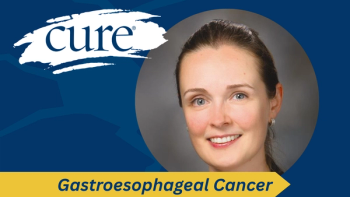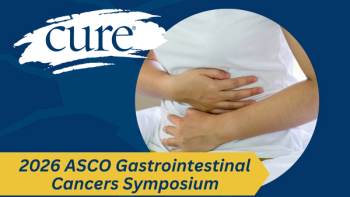
Patients With Low-Risk Colon Cancer Can Have Less Chemotherapy, Reducing Neuropathy
According to findings presented at ASCO 2017, patients with low-risk advanced colon cancer would benefit from reducing the length of chemotherapy after surgery.
The majority of patients with low-risk advanced colon cancer would benefit from reducing the length of the typical oxaliplatin-containing chemotherapy regimen they receive after surgery by half, without notably increasing their risk of recurrence. The shorter therapy course also decreases the likelihood that they will develop neuropathy, according to research reported at the 2017 Annual Meeting of the American Society of Clinical Oncology (ASCO).
The results of the IDEA international collaboration, which involved more than 12,800 patients, demonstrated that a 3-month course of adjuvant chemotherapy is nearly as effective as the standard 6-month course for patients with stage IIIC, lymph-node positive, colon cancer who have undergone surgery.
Overall, the 3-month regimen was associated with a less than one percent lower risk of recurrence compared with a 6-month course as measured by the three-year disease-free survival (DFS) rate (74.6 percent versus 75.5 percent, respectively). In a subset of patients categorized as low risk of cancer recurrence, defined as cancer spread to one to three lymph nodes and not completely through the bowel wall, there was almost no DFS difference between a three-month versus six-month course of therapy (83.1 percent vs 83.3 percent).
Additionally, the rates of grade 2 or higher neurotoxicity were approximately 30 percent less with the shorter duration of chemotherapy.
The findings will change the standard of care for 60 percent of patients with low-risk colon cancer, which accounts for about 20,000 patients annually in the United States and approximately 400,000 individuals worldwide, said senior study author Axel Grothey, M.D., an oncologist at the Mayo Clinic Cancer Center in Rochester, Minnesota, who discussed the results during an ASCO press conference June 4.
For higher risk patients, the analysis provides a framework for doctors to discuss balancing risks versus benefits, Grothey said. “We come into clinical judgment,” he said. “How much are we willing to push patients into 6 months of therapy for a very small minimal difference in disease-free survival?”
Since 2004, adjuvant therapy for these patients has consisted of oxaliplatin-containing chemotherapy administered over 6 months. In the study, investigators examined pooled results for patients who had received either FOLFOX (leucovorin, fluorouracil, oxaliplatin) or CAPOX (capecitabine, oxaliplatin), which also is known as XELOX.
Although these regimens have improved survival for patients, oxaliplatin is associated with cumulative dose—dependent nerve damage, such as numbness, tingling, and pain that many patients find debilitating and that can persist long after therapy ends, sometimes permanently. Grothey said dose reductions and early discontinuation due to neurotoxicity are common.
The IDEA investigators reached a consensus on a risk-based approach to adjuvant chemotherapy for patients with stage III colon cancer: for patients with T1-3 N1 disease, they recommended 3 months of chemotherapy; for patients with T4 and/or N2 or other high-risk factors, they advise determining the duration of therapy by tolerability, patient preference, assessment of risk recurrence factors, and choice of regimen.
Collaborative Effort Highlighted
“This is a great day for patients throughout the world,” said Nancy Baxter, M.D., F.R.C.S.C., Ph.D., chief of the General Surgery Department at St. Michael’s Hospital in Toronto, Canada, who served as ASCO’s expert commentator during the presscast. “What we’ve heard today is practice-changing work that shows for most people with stage III colon cancer, 3 months of treatment provides all the benefits of 6 months of treatment with fewer risks. Less is more.”Grothey pointed out that the IDEA research was funded through the National Institutes of Health (NIH), public agencies in other countries, and philanthropies. He noted that commercial companies do not focus on shortening therapy.
“This type of work can only be done with federal funding,” agreed Baxter. “The pharmaceutical industry is not interested in giving less treatment. This study is a great example of how NIH funding can have a major and immediate impact on the lives of cancer patients.”
The data for the study were pooled from these trials: SCOT in the United Kingdom, Denmark, Spain, Australia, Sweden, and New Zealand; TOSCA in Italy; Alliance/SWOG 80702 in the United States and Canada; IDEA France (GERCOR/PRODIGE) in France; ACHIEVE in Japan; and HORG in Greece.



